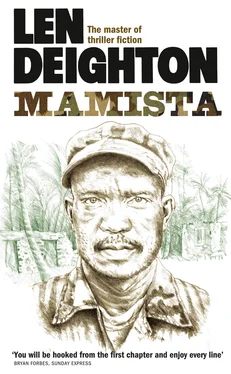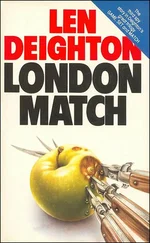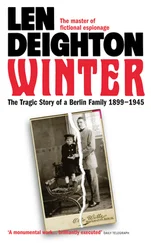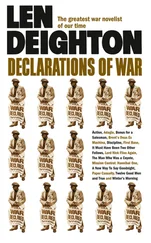Other physicians influenced my story. When I was a student, living in south London, the tiny apartment block in which I lived was otherwise entirely occupied by doctors from nearby Guy’s Hospital. I made friends with several of them and the whole block was on some sort of priority list with the GPO telephone service. I treasured this service for at this time telephones were a government monopoly and a reliable telephone was a rare facility in England. In addition to the friendships I made with my medically trained neighbours, my local doctor was a man who had spent his military service as an army doctor and, most unusually for a conscript, had risen to the rank of Lt-Col. He became a close friend as well as a reliable source of medical advice and treatment. Initially I toyed with the idea of making the central figure of MAMista a priest or a missionary but I soon modified the character into a combination of my Australian veteran and my doctor friend. There were other doctors to whom I remain indebted. My old friend Dr Maurice Lessof read the typescript and explained medical and surgical realities. Although the result was a fictional character that none of these doctors would have recognized, he was a hero for what I conceived as a love story.
With a doctor as the main character the medical aspect was important. I have no medical training but I became acquainted with physical injury at an early age. As a teenager I had served as a wartime messenger at a First Aid Post in Marylebone Road in Central London. Along with all the other inhabitants of London I lost friends and neighbours in the bombing that came every night from September 1940 until May. And flying bombs and rockets continued to fall during the following years. I had seen what high explosives did to the human body. During my service in the RAF I had been a medical photographer working with surgical teams in the operating theatres. These ideas and experiences helped to provide the background to the story of MAMista.
I am not a political person. I have never been able to accept the stated ideas of any political organization, which is why I have never joined one. But I am not bored by politics: like economics, it paints a revealing picture of people and their fears and aspirations both real and unreal. Starting with my days as an art student I met many communists: Marxists, Trotskyites and other sub divisions of the Left. Many of them had genuine wishes to do good and some were self-denying in their lifestyle to a point of self-destruction. Later when for historical research my family and I lived in Berlin and Munich I met many Nazis, some of whom had held senior military or Party ranks. I have found that most people with strong political beliefs are guided by emotion rather than logic and are apt to be tolerant of ugly repressive measures taken in the name of the poor or of patriotism. My experience over many years has left me with the firm belief that anyone given regulatory power is very likely to abuse it. Few politicians are brave enough to deregulate but the fewer the regulations the better and happier and more prosperous does any society become.
So I had no great difficulty in creating MAMista the South American political movement that gave its name to this book. And when I had any doubts about political theories a cup of coffee with one of my political friends quickly ironed them out. My first decision had been the jungle and I was never tempted to change that. Most stories benefit from an enclosed setting – submarine, hospital, boardroom – and the jungle provided a claustrophobic and menacing one. It was also mysterious. The jungle dominates the story and I intended that it should be so.
The freedom that comes with writing books is a responsibility and test. The best stories, like the best movies, are ones with plots that are impossible to move to a different setting. The story should be unique to the environment so that the setting grips the characters. All of these strictures were in my mind during the planning stage of MAMista. It was to be a story of incompatible people surmounting their differences and mutual dislike in order to survive. Describing the changing attitude of my characters remained the basic idea; a hostile environment would be the driving force of that change. There was no question of making it a first-person narrative; the scenes in Los Angeles and in the White House were important to the structure. And getting the White House right was not easy! It was not going to be a simple task and you must decide to what extent I succeeded.
Len Deighton, 2011
‘Hegel says somewhere that all great events and personalities in world history reappear in one fashion or another. He forgot to add: the first time as tragedy, the second as farce.’
Karl Marx, The 18th Brumaire of Louis Napoleon
TEPILO, SPANISH GUIANA.
‘It’s the greenhouse effect.’
The smell of the rain forest came on the offshore breeze, long before they were in sight of land. It was a sour smell of putrefaction. Next morning they awoke to see the coast, and the rusty old Pelicano followed it for two more days. The brooding presence of the vast jungle had had a profound effect upon everyone aboard. South America. Even the crew seemed to move more quietly and passengers spent hours on the confined space they called the ‘promenade deck’. They stared for hours at the mysterious dark green snake of land, and the distant mountains, that all regularly disappeared behind grey mist. For the most part it was flat coastal land: swamps where the mangrove flourished. At twilight flocks of birds – favouring the brackish water – came flying so low that their beaks were scooping up some sort of tiny fish.
The Atlantic water grew ever more ochre-coloured as they went east. It was silt from the Amazon. The prevailing currents make the water brown all the way to the Caribbean. The steward, obsequious now that the passengers were nearing their destination, passed his battered old binoculars around. He pointed out the sheer-sided stone fortress which now housed political prisoners. It was built on a rocky promontory. He said the guards put meat in the sea to be sure the water was never free of sharks.
On that last day of the voyage, the Pelicano drew closer to the land and they saw men, isolated huts and a fishing village or two. Then the sweep of Tepilo Bay came into view and then the incongruous collection of buildings that makes the Tepilo waterfront. Dominating it was the wonderful old customs house with its gold dome. Alongside ornate Victorian blocks, and stone warehouses, stood clapboard buildings, their peeling white paint gone as grey as the stonework. They’d no doubt be snatched away by the next flood or hurricane and then be rebuilt as they had been so many times before.
Here and there window shutters were being opened, as office workers resumed work after siesta. Four rusty dock cranes hung over the jetty where two ancient freighters were tied up. From a castellate tower children were jumping into the water for tourists’ pennies. Beyond that flowed the appropriately named ‘stinking creek’, which vomited hardwood trees when the up-country logging camps were working.
There were two wooden huts used by the soldiers and next to them a customs shed. Painted red it had been bleached pale pink by the scorching sun. Tall white letters – ADUANA – on the wall which faced out to sea were almost indiscernible. Scruffy, grey-uniformed soldiers, with old Lee Enfield rifles slung over their shoulders, stood along the waterfront watching the Pelicano approaching. An officer with a sabre at his belt and shiny top-boots strode up and down importantly. Not so long ago there had been passengers arriving by sea every day. Now only freighters came, and few of them carried visitors. A radio message that the Pelicano had ten passengers aboard had caused great excitement. It set a record for the month. The chief customs officer got a ride on a truck from the airport in order to be present.
Читать дальше












